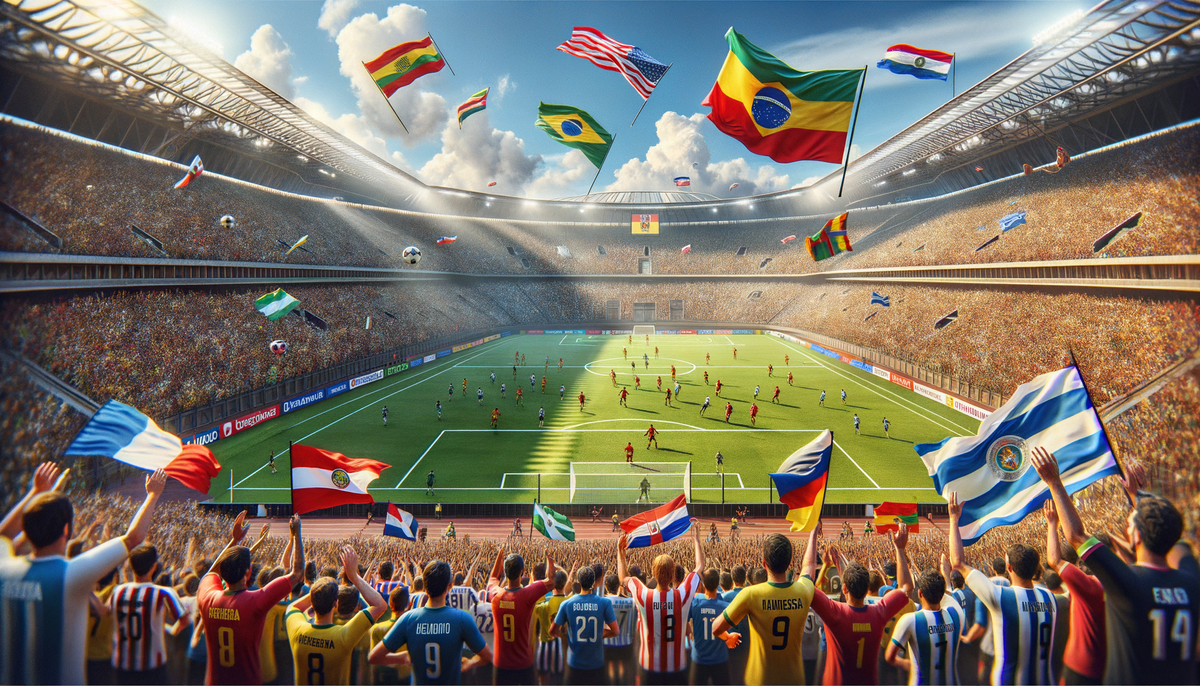Libertadores: The Ever-Prominent Stage for South American Football
Explore the grandeur of the Copa Libertadores, South America's leading football tournament, rich in history and vibrant competition.

The Copa Libertadores, often revered as South America’s equivalent to Europe’s UEFA Champions League, is a prestigious football tournament that has captivated fans across the continent since its inception in 1960. The tournament, officially termed the CONMEBOL Libertadores or Copa Libertadores de América, celebrates the legacy of the 'Libertadores' — the pioneers of Latin America’s independence.
The Heritage of Libertadores
The name ‘Libertadores’ pays homage to esteemed figures such as Simón Bolívar and José de San Martín, who were instrumental in the liberation of Latin American countries from colonial rule. This symbolic naming underscores the competition’s cultural and historical roots, adeptly blending the past with the contemporary excitement of the sport.
The tournament has grown immensely since its founding year, evolving from an exclusive league champions' event to a vibrant, comprehensive showcase of the continent's football prowess. Today, the competition features 47 clubs from 10 different South American football associations. Significantly, larger football nations like Brazil and Argentina contribute more teams, six and seven respectively, compared to their neighbors.
Insights into the Copa Libertadores Structure
The competition's format has also seen substantial evolution. Initially limited to league champions, the inclusion of runners-up in 1966 started its expansion, culminating in 2000 when the structure enlarged to accommodate 32 teams. Currently, it comprises a group stage followed by knockout rounds, promising exhilarating matches as clubs vie for the top honors.
The Copa Libertadores shares a symbiotic relationship with the Copa Sudamericana, another key club tournament that serves as South America’s second-tier competition.
Recent Developments and Highlights
In recent years, the tournament has seen emerging talent and intense competition. The 2025 title went to Botafogo, marking their first triumph in the cup's storied history. Notably, Argentina’s Independiente stands out as the most successful club, boasting seven titles.
Fans recently witnessed a thrilling match between São Paulo and Alianza Lima, shedding light on the thrilling rivalries that characterize the championship. For a detailed overview, you can explore the match reports on UOL, Terra, and Globo.
The Linguistic and Historical Significance
Deriving from the Spanish and Portuguese term for 'liberator,' the Copa Libertadores invites reflection on those who’ve fought for freedom across Latin America. This echoes the tournament's foundational ethos, encapsulating the spirit of liberation both on and off the pitch.
Conclusion and Future Outlook for Libertadores Professionals
As South America's premier football contest, the Copa Libertadores offers more than just sporting spectacle; it’s a celebration of cultural identity and history. For professionals involved in the tournament, understanding its rich background provides valuable insight into the dynamics at play within South American football.
Our marketing team at newsomix.com is committed to delivering insightful analysis and up-to-date reports on tournament progress, catering specifically to business leaders and decision-makers in the football field. If you wish to remain informed on the latest Libertadores developments, subscribe to our newsletter and be part of South America's football frontier.
In conclusion, as the competition evolves, it continues to offer lessons in strategic thinking and international sports relationships that resonate beyond the football community. As the Copa Libertadores forges ahead, it promises ongoing excitement and challenges, vital for any stakeholder in the sporting domain.




